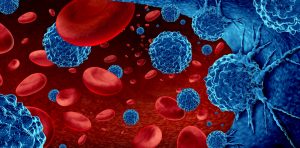
Roche should be ‘shamed’ into lowering cancer drug price
pharmafile | September 16, 2014 | News story | Medical Communications, Sales and Marketing | Kadcyla, Margaret Connolly, Roche, Swiss, breast cancer, trastuzumab emtansine
A public petition to force Roche to lower the cost of its costly new breast cancer drug Kadcyla has been spread online by a disease survivor.
The petition has been set up by Margaret Connolly, a British woman who survived breast cancer nearly five years ago. She says: “Thirteen years ago a five-year-old boy told me all he wanted for Christmas was ‘just one thing auntie Margaret: five minutes with my mummy’.
“It broke my heart – his wonderful mummy Helen Mulhearn had suffered an awful death 16 months previously due to late diagnosed breast cancer.
“At that time there were not many drugs that could have helped her. Four and a half years ago I was also found to have breast cancer [but] I was lucky – I was diagnosed early – with standard breast cancer suitable for a drug called tamoxifen [a generic hormonal therapy] that cost pennies.”
She says that today there are better treatments, notably in the form of Roche’s new breast cancer treatment Kadcyla (trastuzumab emtansine), which can extend life in terminal patients by an average of around six months (but cannot cure them).
The drug, however, costs £90,000, making it the most expensive cancer drug even introduced into the UK. Given its high price and relatively low efficacy, NICE is currently minded to reject its use on the NHS, according to draft guidance released in August.
The watchdog was unusually vociferous in its rejection of the medicine, with its chief executive Sir Andrew Dillon expressing his ‘disappointment’ in the firm’s decision to price the drug so highly.
Connolly says that Kadcyla “could help [some] young women with advanced breast cancer, but Roche has priced the drug at £90,000 – out of reach of the NHS”.
She concludes: “We [the signatories of the petition] call on Roche to reduce the price of Kadcyla to a level acceptable to NICE [which would be 60% of its current price]. We ask that this drug be available as a matter of course.”
The petition, called: ‘Shame on drugs giant Roche for denying breast cancer sufferers’ precious extra months of life’, has (at time of press) more than 4,500 signatures – and Connolly hopes to reach a high enough number in order to send it on to Severin Schwan, the chief executive of Roche. The number of signatures has risen dramatically, nearly doubling from 2,500 at the beginning of the day.
Jennifer Cozzane, head of heath economics at Roche, said after the drug was rejected by NICE that the price “reflects the value in terms of extra life”.
But this has not gone down well with many on the petition’s site, with one anonymous signatory saying: “I have three friends currently with breast cancer, all of whom are being helped with affordable drugs and therapy.
“I cannot believe that Roche are so heartless and money grabbing to develop this drug and then price it out of reach of ordinary people. Jennifer Cozzane should be ashamed of herself.”
Cancer Drugs Fund
The drug is currently available to patients via the Cancer Drugs Fund (CDF), which injects an extra £280 million into NHS England per year for new oncology treatments not recommended by NICE, or under appraisal by the watchdog.
The government first set up the full CDF in 2011 with a £200 million a year budget, but last month this was extended to £280 million to per year until 2016, when the Fund is set to end.
The increase in funding is due directly to the fact that the specialist commissioning budget of NHS England, which backs these medicines, was failing to keep up with rising costs and demand.
NHS England also says that the drugs being assessed by the Fund must now also have their cost taken into consideration, something that has not happened before given the budgetary pressures.
NICE said earlier this month at a Health Select Committee meeting of MPs that the CDF should ‘follow its processes’ to ensure that it is a cost-effective use of public money.
It remains to be seen whether Kadcyla, which has had around 300 CDF requests so far this year, will be assessed under this new cost-cutting scheme.
Ben Adams
Related Content

FDA approves Roche’s HPV self-collection screening option
Roche has announced that the US Food and Drug Administration (FDA) has approved its human …

Roche’s Alecensa approved by FDA as lung cancer treatment
Roche has announced that the US Food and Drug Administration (FDA) has approved Alecensa (alectinib) …

Genentech’s Columbi meets primary endpoint in phase 3 trial for lymphoma treatment
Genentech, part of the Roche Group, has announced that its phase 3 STARGLO trial has …







